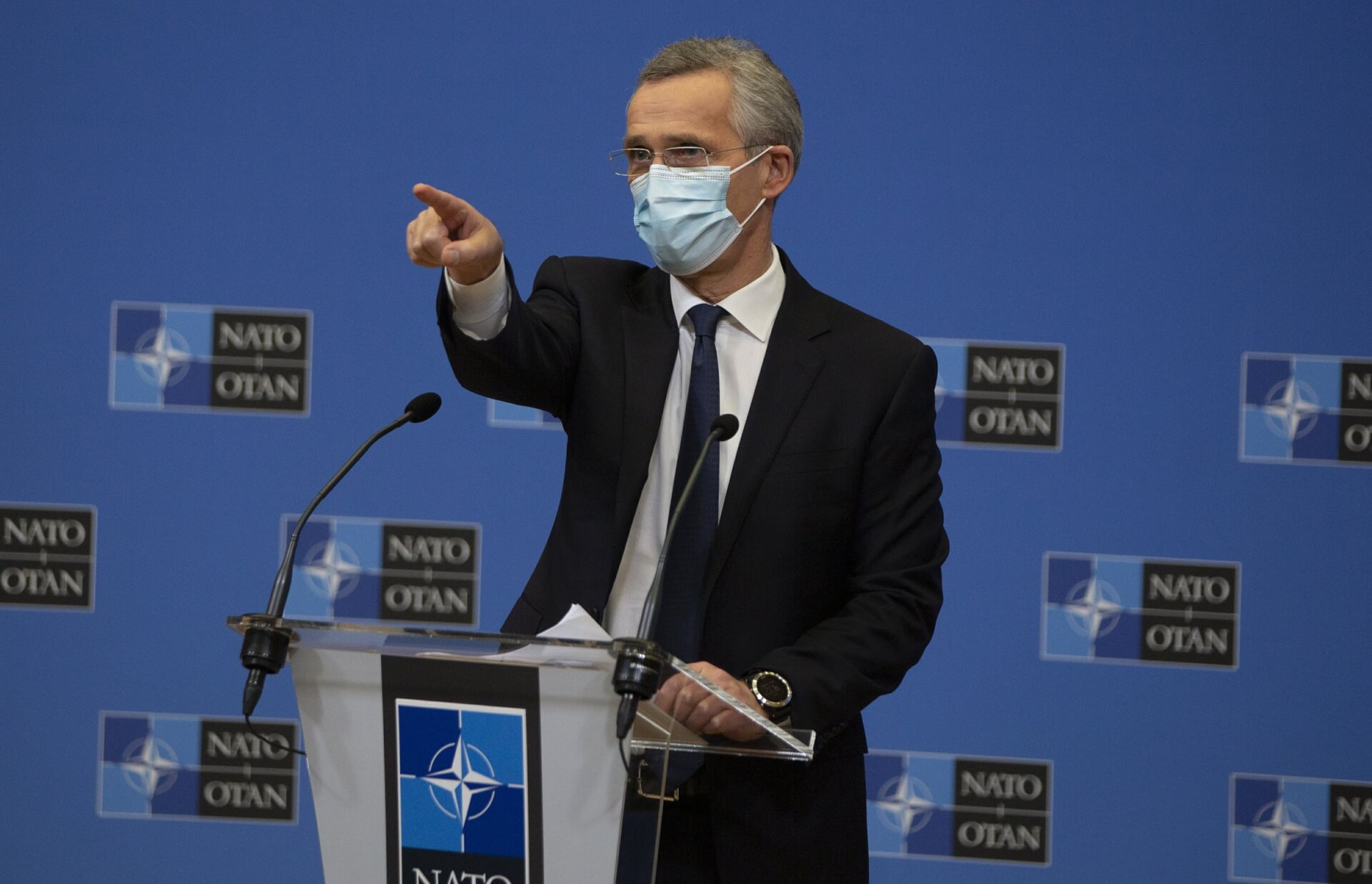NATO foreign ministers concluded their second and final day of talks in Brussels on Wednesday, where Russia and arms control featured as the main topics of discussion. Secretary-General Jens Stoltenberg delivered remarks to the press following the meeting, which was attended by Finland, Sweden, as well as European Union (EU) foreign affairs chief Josep Borrell.
Stoltenberg lamented that despite consistent efforts to exert pressure as well as meaningfully engage with Moscow, it has “increased its pattern of repressive behaviour at home and aggressive behaviour abroad.” Citing the country’s treatment of Kremlin critic and opposition leader Alexei Navalny, its support for the authoritarian government in Belarus, and its actions in Ukraine, the NATO chief accused Russia of violently oppressing political dissent, while continuing to undermine and destabilise its neighbourhood.
The official also criticised Russia’s “wide-ranging military build-up” from the Black Sea to the Arctic, as well as its efforts to influence elections through disinformation campaigns and cyber-attacks. However, Stoltenberg noted that NATO allies and their partners remained united and committed to addressing these threats. “We have stepped up our hybrid and cyber defences. We will remain vigilant. And we will continue to work with the EU and our close partners, to make sure that we respond to Russia’s actions together,” he said.
He also stressed that NATO’s approach consisted of a dual-track, which combined “strong deterrence and defence, with openness to dialogue.” He underscored that member-states welcomed the decision by the United States (US) and Russia to extend the New START Treaty, and said given the alliance’s long-standing commitment to arms control, it remains a “unique platform” for Europe and North America to consult on the future of the issue.
Also read: NATO Leaders Conclude First Day of Foreign Ministerial Meetings
Apart from the broader NATO ministerial talks, the final day also saw the US Secretary of State Antony Blinken undertaking separate bilateral discussions with several European counterparts. In meetings with the EU’s foreign policy chief Josep Borrell and European Commission President Ursula von der Leyen, the leaders discussed ways to strengthen the US-EU relationship and coordinate responses to shared foreign policy, security, and economic issues. Further, the officials exchanged views on ways to deal and engage with China, Russia, Iran (through the JCPOA), while also committing to coordinate closely through international fora to address common global challenges, such as the COVID-19 pandemic.
Blinken also met with his counterparts from Estonia, Latvia, and Lithuania, and reaffirmed Washington’s support for peace, prosperity and democracy across the region, while also expressing gratitude for the countries’ commitment and contributions to NATO. Finally, the secretary spoke with his Turkish counterpart Mevlüt Çavuşoğlu, wherein he voiced support for the ongoing exploratory talks between Athens and Ankara, but also expressed concern regarding Turkey’s purchase of the Russian S-400 defence system and its withdrawal from the Istanbul Convention on Preventing and Combating Violence Against Women and Domestic Violence.
The secretary has heavily focused his messaging over the two-day summit on the US’ commitment to revitalising ties with its transatlantic allies and partners. In an address on Wednesday, Blinken reiterated Washington’s determination to move away from prioritising only US interests and focus on achieving collective security. He said that with the rise in threats from Russia and China on the military as well as technological fronts, and the persistence of crises like COVID-19 and global warming, it was crucial for NATO to confront these challenges together, especially as they outpace countries’ efforts to build the capacities needed to contain them. However, the official also noted that alienating adversaries was not the answer and that it was important to find ways to navigate complex relationships and identify avenues for cooperation.
The Biden administration’s approach to the alliance has been welcomed by European nations, and according to the White House, President Biden will discuss boosting US-EU relations with the bloc’s leaders today via teleconference.

